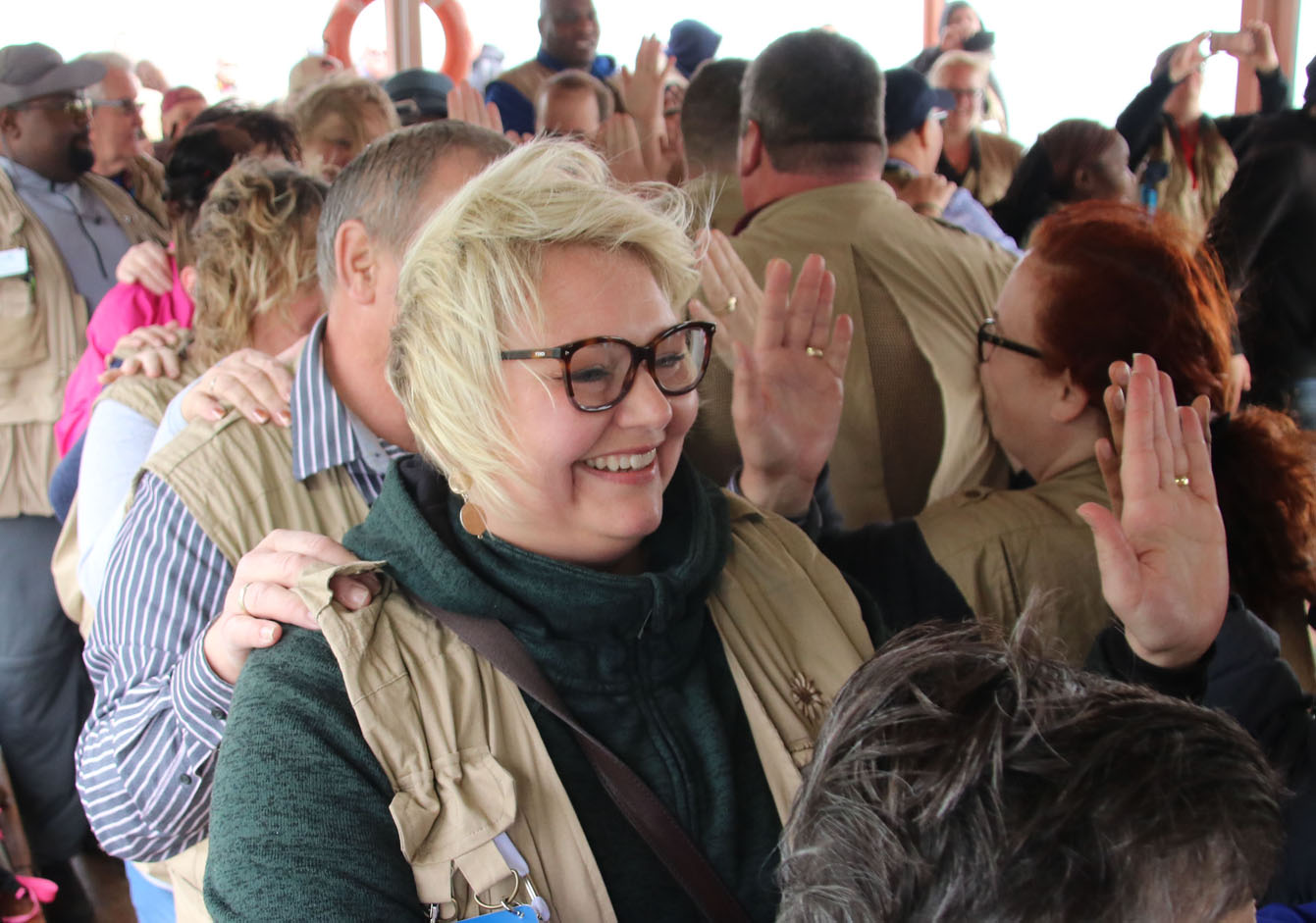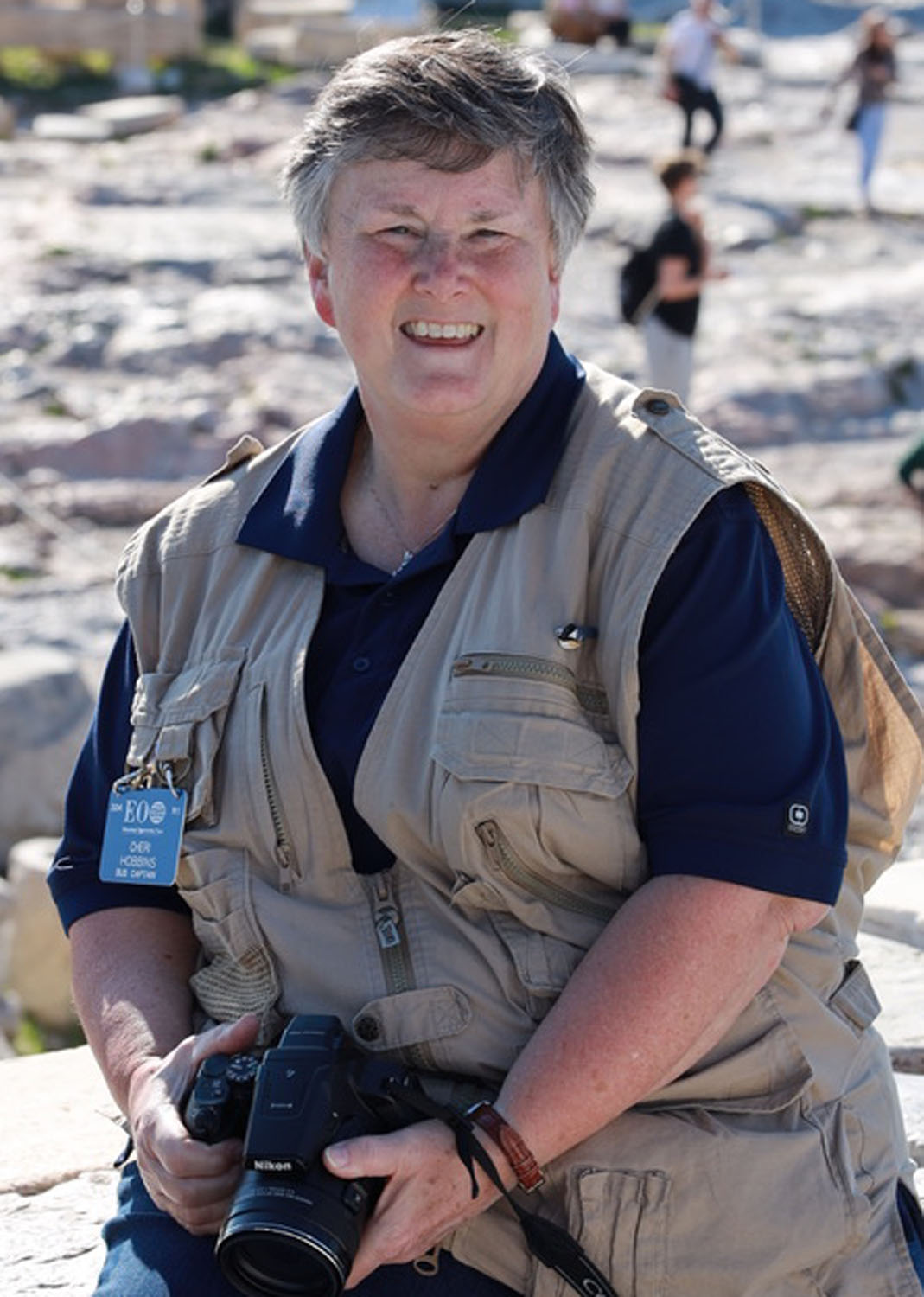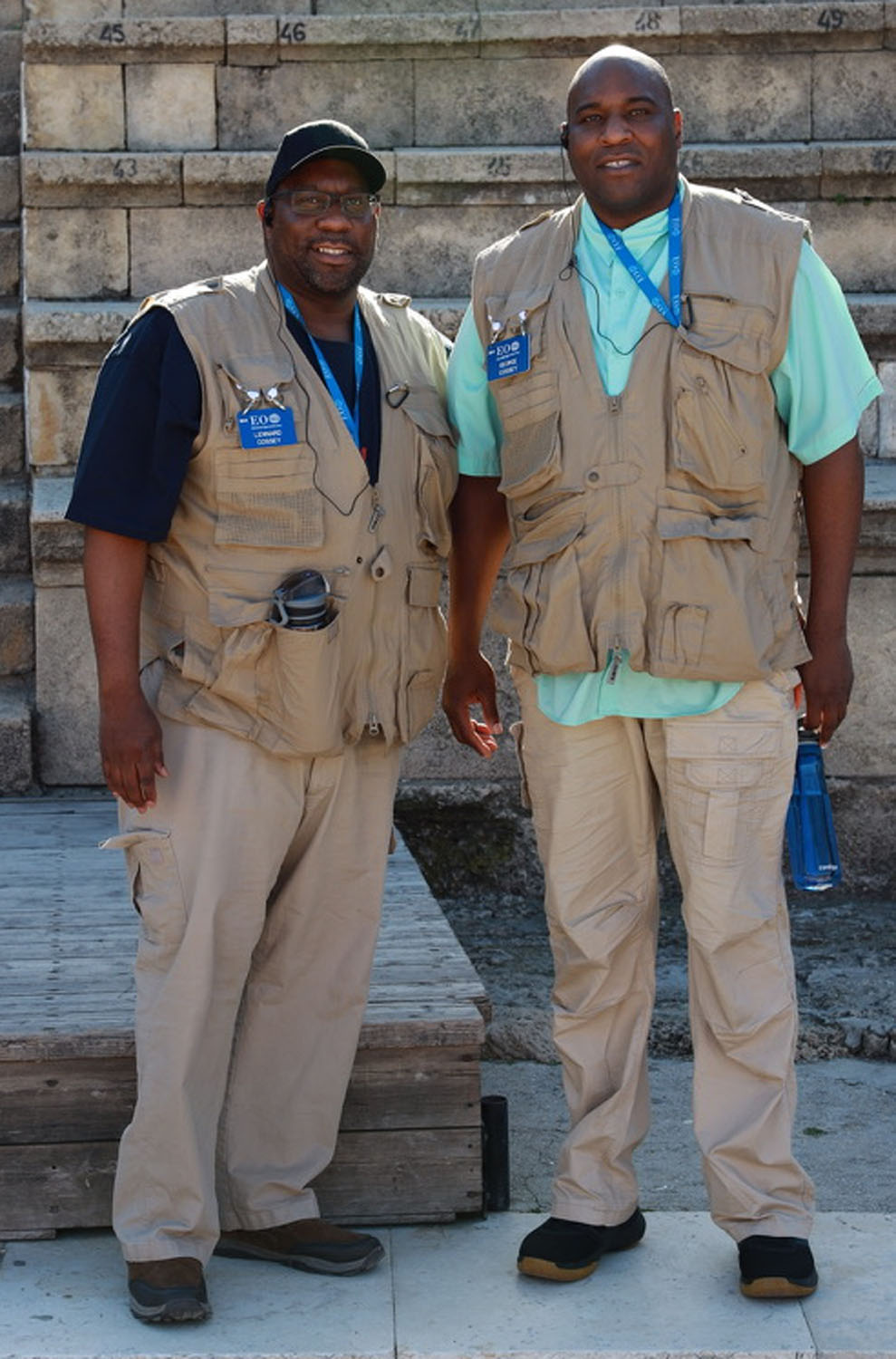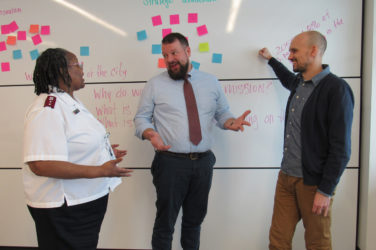by Sarah Miesch
As we sat in the chapel at Territorial Headquarters eagerly awaiting our long flight, Territorial Commander Commissioner Brad Bailey took a moment to pray with us. He said he would “never see these faces again” because we would return from this trip changed. He was right.
 To say visiting the Holy Land was a dream is an understatement. It has been “the dream” for me for as long as I can remember. Every time my students (I teach in a public high school) would ask about my dream trip, I would respond, “That’s easy. I want to go to Israel!” However, I never really believed it would happen. When it finally was in sight and my husband and I prepared for the trip, many people who’d already gone said, “You will never read scripture the same way again.”
To say visiting the Holy Land was a dream is an understatement. It has been “the dream” for me for as long as I can remember. Every time my students (I teach in a public high school) would ask about my dream trip, I would respond, “That’s easy. I want to go to Israel!” However, I never really believed it would happen. When it finally was in sight and my husband and I prepared for the trip, many people who’d already gone said, “You will never read scripture the same way again.”
To sail in a boat on the Sea of Galilee and imagine the storm, to sit on the mountainside reading the Beatitudes knowing this natural amphitheater is where Jesus challenged His followers to be “salt and light,” to visit the garden where Jesus prayed and prepared to sacrifice His life for mine—it was overwhelming.
 The theme, “Ancient lands with a modern message,” kept playing in my head. We visited uncovered ancient Jewish temples from 2,000 years ago and saw how pagan practice and culture crept into their worship. Images of Medusa and Dionysus laid into the mosaics next to the sacred tablets of the Law that God gave to Moses struck a chord in me. How easily we as the church in 2020 can fall into the same lies. Major Cherri Hobbins mentioned the “God-and” (syncretism) of their worship; it’s often no different today. Looking around, it’s easy to see “Jesus-and” in our churches, teaching, personal study and practice. Have we simply replaced our “mikvahs” (Jewish ritual bathing to remove impurities) with good deeds?
The theme, “Ancient lands with a modern message,” kept playing in my head. We visited uncovered ancient Jewish temples from 2,000 years ago and saw how pagan practice and culture crept into their worship. Images of Medusa and Dionysus laid into the mosaics next to the sacred tablets of the Law that God gave to Moses struck a chord in me. How easily we as the church in 2020 can fall into the same lies. Major Cherri Hobbins mentioned the “God-and” (syncretism) of their worship; it’s often no different today. Looking around, it’s easy to see “Jesus-and” in our churches, teaching, personal study and practice. Have we simply replaced our “mikvahs” (Jewish ritual bathing to remove impurities) with good deeds?
The rituals instructed by God, like good works, are just to be an extension of our faith with the purpose of “glorifying our Father in Heaven” (Matthew 5:16) not to provide our purity or salvation. It is only the death and resurrection of Christ that can provide our salvation (Ephesians 1:7; Salvation Army Doctrine #6). We are “justified by grace through faith” (Romans 3:24, Salvation Army Doctrine #8), not our works. Praise be to God for this because what could I ever really do to earn my salvation?
 The song by Christina Rossetti comes to my mind:
The song by Christina Rossetti comes to my mind:
“What can I give Him, poor as I am?
If I were a shepherd, I would bring a lamb;
If I were a wise man, I would do my part;
Yet what can I give Him? Give Him my heart.”
The impact of this trip is yet to be fully understood. The moments of worshiping together through song, prayer and scripture reading are sweet treasures we are fortunate to reflect upon. We are so grateful for those who made this dream a reality.
Editor’s note: Sarah and 13 other soldiers were able to participate in the Biblical Education Tour (BET) earlier this year due to a new soldiers’ assistance plan that helps bring the Bible to life and enhance their ministry as local leaders at their corps. Next year the BET is scheduled to go to Greece and Turkey and study the Bible in the footsteps of Paul.




